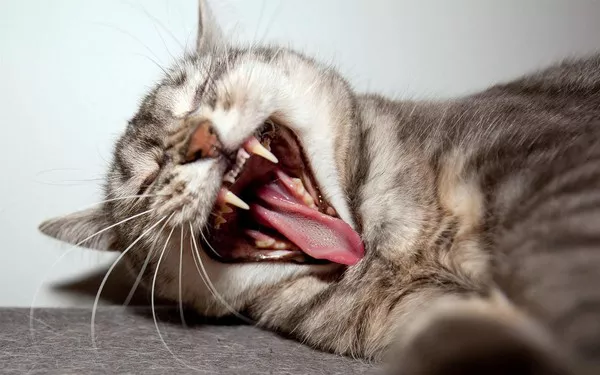Breed Overview:
The Cornish Rex is a breed of cat renowned for its distinctive appearance and lively personality. Characterized by its soft, wavy coat, large ears, and slender build, the Cornish Rex stands out among feline enthusiasts. Originating from Cornwall, England, in the 1950s, this breed emerged from a natural mutation and has since captivated cat lovers worldwide.
Size Expectations:
Cornish Rex cats typically fall within a moderate size range compared to other feline breeds. On average, adult Cornish Rex cats weigh between 6 to 10 pounds (2.7 to 4.5 kilograms). In terms of height, they typically measure around 10 to 12 inches (25 to 30 centimeters) at the shoulder. However, individual variations may occur, influenced by factors such as genetics, diet, and health.
Growth Chart:
Understanding the growth progression of a Cornish Rex cat from kittenhood to adulthood is essential for pet owners. Below is a generalized growth chart outlining the expected size milestones:
Kitten (0-6 months): During this stage, Cornish Rex kittens undergo rapid growth, doubling or even tripling their birth weight within the first few weeks. By six months, they typically reach around 50-75% of their adult size.
Adolescent (6-12 months): As kittens transition into adolescence, their growth rate slows down, but they continue to gain muscle mass and fill out their slender frames.
Adult (1 year and beyond): By the age of one year, Cornish Rex cats have usually reached their full height and weight, although they may continue to develop muscle tone and body condition over the next year or two.
Factors Influencing Size: Unraveling the Influential Elements
Several factors contribute to the size of a Cornish Rex cat, including genetics, diet, and overall health:
Genetics: The genetic makeup of a Cornish Rex plays a significant role in determining its size. Breeders selectively breed cats to maintain desired traits, including size, within the breed standard.
Dietary Factors: Proper nutrition is crucial for healthy growth in Cornish Rex cats. A balanced diet rich in high-quality proteins, vitamins, and minerals supports optimal development and maintains an ideal body condition.
Health Considerations: Health issues such as hormonal imbalances, thyroid disorders, or gastrointestinal issues can impact a Cornish Rex’s growth. Regular veterinary check-ups and prompt medical attention are essential for detecting and addressing any health concerns that may affect size.
Health and Nutrition: Nurturing Growth Through Wellness
Ensuring the health and well-being of Cornish Rex cats involves providing them with appropriate nutrition and healthcare:
Nutrition: Choose a premium cat food formulated to meet the nutritional needs of Cornish Rex cats. Look for recipes that feature high-quality protein sources, essential fatty acids, and a balanced blend of vitamins and minerals.
Hydration: Keep your Cornish Rex hydrated by providing access to clean, fresh water at all times. Proper hydration is essential for maintaining overall health and supporting growth and development.
Veterinary Care: Schedule regular veterinary check-ups to monitor your Cornish Rex’s growth and overall health. Your veterinarian can offer guidance on nutrition, preventive care, and any health issues that may arise.
Comparison with Other Breeds: Putting Size in Perspective
When comparing the size of Cornish Rex cats to other popular breeds, it’s essential to consider their unique characteristics and individual variations:
Cornish Rex vs Maine Coon: While Cornish Rex cats are slender and lightweight, Maine Coons are known for their large size and muscular build. Maine Coons typically weigh between 10 to 25 pounds (4.5 to 11 kilograms) and stand taller at the shoulder compared to Cornish Rex cats.
Cornish Rex vs Siamese: Siamese cats share a similar slender physique with Cornish Rex cats but tend to be slightly larger in size. Siamese cats typically weigh between 8 to 12 pounds (3.6 to 5.4 kilograms) and have a more angular facial structure compared to the rounded contours of Cornish Rex cats.
Caring for Your Cornish Rex: Tailoring the Environment to Their Needs
Creating a comfortable living environment tailored to the unique needs of Cornish Rex cats is essential for their well-being:
Provide Enrichment: Keep your Cornish Rex mentally stimulated and physically active by offering interactive toys, scratching posts, and climbing structures.
Temperature Regulation: Cornish Rex cats have a fine, short coat that offers minimal insulation against cold temperatures. Ensure they have access to warm areas in the home during colder months, such as cozy beds or heated cat beds.
Grooming: Despite their short coat, Cornish Rex cats require regular grooming to remove loose hair and prevent matting. Use a soft-bristled brush or grooming mitt to gently groom your cat’s coat once or twice a week.
When to Consult a Vet: Recognizing Signs of Concern
While Cornish Rex cats generally fall within a predictable size range, it’s essential to be vigilant for any signs of abnormal growth or health issues:
Slow Growth: If your Cornish Rex kitten’s growth rate is significantly slower than expected or if they fail to reach developmental milestones, consult your veterinarian for a thorough evaluation.
Weight Loss or Gain: Sudden changes in weight or body condition may indicate underlying health issues such as metabolic disorders or digestive problems. Seek veterinary advice if you notice any unexplained changes in your Cornish Rex’s size or appetite.
In conclusion, understanding the size expectations, growth progression, and factors influencing the size of Cornish Rex cats is crucial for providing optimal care and ensuring their well-being. By prioritizing proper nutrition, healthcare, and environmental enrichment, pet owners can help their Cornish Rex companions thrive and enjoy a long, healthy life. Regular veterinary care and proactive monitoring are essential for detecting and addressing any health issues that may impact a Cornish Rex’s size or overall well-being.
Related Topics:

























